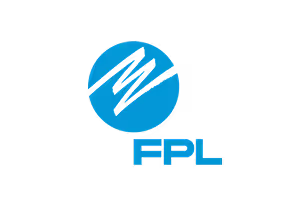Solutions
IT Change
Management
Structured processes to minimize risk and maximize stability. Standardize requests, automate approvals, prevent conflicts, and prove control-without ripping out your existing ITSM


Why IT Needs Structured Change
Unstructured change is a tax you pay in downtime, rollbacks, and late-night firefights. You need a system that captures intent, make risk explicit, and routes the right people at the right-time-then documents everything for audits. Serviceaide provides guardrails to move faster and safer:
standard/normal/emergency paths, real-time calendars, and a single record of truth for decisions, dependencies, and results. (For context on why IT must formalize change, see CIO.com’s recent guidance for IT leaders.)
The Solution
Serviceaide IT Change Management centralizes the lifecycle: request → assess → approve Streamline Change → implement → verify → close. Change forms adapt to context; risk models guide the path; approvals are automated where safe and escalated where necessary. A live calendar Management for coordinates shared infrastructure, while AI spots conflicts and proposes safer windows before you commit.
How It Works
Every change begins as a clean, structured request. AI classifies it as standard, normal, or emergency and flags security/compliance sensitivity. Peers can review complex work before CAB. When you schedule, the system checks for collisions across shared systems and regions, then nudges you toward a safer slot. During implementation, results stream back into the record in real time. If a window is exceeded or tests fail, “successful” stays locked until the back-out plan is applied—or a new approval is granted.

Value
Fewer failed changes. Faster approvals for low-risk work. Conflict-free scheduling across regions and clouds. Leaders get visibility that matters—success rates, mean time between failed changes, rollout velocity—on dashboards built for board decks and daily standups alike.


Social

Proof
Fewer rollbacks. Quieter on-calls. Audits that feel routine.
Banks, health systems, SaaS platforms, and utilities trust Serviceaide to make change boring—in the best way. (Gartner Peer Insights reviews consistently call out ChangeGear’s usability for change workflows.)
Use

Cases
Release managers use it as a collision-avoidance layer that keeps trains running.
Platform and network teams rely on the shared calendar and dependency map to prevent pile-ups.
CAB chairs get a pre-triaged queue with back-out plans and impact analysis attached.



AI
AI watches your backlog and schedule like a seasoned SRE. It predicts conflicts on shared systems, estimates success probability using historical patterns, and proposes safer windows across regions or cloud instances. It auto-tags security-sensitive changes, suggests impacted teams for cross-functional review, and pre-approves templated maintenance when risk is negligible—so humans spend time where judgment matters.
Integrations &

Ecosystems
Plug into your stack: Jira for dev flow; incident modules for feedback loops; ITOM/discovery and CMDBs for topology; AD/HR systems for user sync; Teams and email/SMS for notifications; pre-built Power BI/Tableau connectors for KPIs. Use it alongside ServiceNow or BMC CMDBs; Smartsheet and ticketing tools slot in for planning and status sync. (Gartner’s comparisons show ChangeGear positioned among leading ITSM platforms.)


Security, Governance
&

Audit Readiness
Every approval is timestamped. Every action is logged. Data is encrypted in transit and at rest. Access can be restricted by project, customer, or region. Retention and purge policies are configurable; audit logs are searchable/exportable; reports are one-click for recurring frameworks and leadership cadences.

Use Cases
See IT Change Management in

Action
A global SaaS platform cut failed changes by a third and shrank CAB lead time by half after standardizing templates and enabling AI conflict detection. The best part? Less pageantry, more predictability.
FAQ
Why does IT need structured change processes?
To turn risk into a managed variable—consistent classification, approvals, windows, and
evidence so velocity doesn’t mean volatility. (See CIO.com on the leadership mandate.) CIO
Can change requests be peer-reviewed before approval?
Yes. Route complex work to peer review prior to CAB.
Are CRs auto-categorized (standard/normal/emergency)?
Yes. AI + policy rules classify automatically; humans can override.
Do you track rollback/back-out plans?
Yes. Plans are required per policy and tied to close criteria.
Can approvals be automated for low-risk changes?
Yes. Pre-approved templates automate safe paths; escalations handle exceptions.
How do you prevent scheduling conflicts?
A live calendar checks shared infrastructure, regions, and maintenance windows; AI flags
overlaps and proposes alternatives.
Cross-functional technical reviews?
Yes. The system suggests impacted teams based on dependencies.
Regions/cloud instances configurable?
Yes. Define regions, clouds, and environments (prod/test/training), with refresh/clone
guidance.
Stakeholder notifications (email/SMS)?
Yes—automatic updates on status changes and upcoming windows.
Conflicting changes on shared infrastructure?
Yes. Dependency mapping + schedule intelligence + AI conflict detection.
Impact analysis or simulations?
Yes. Dependency-aware impact analysis with “what-if” scheduling.
Freeze periods/blackouts enforced?
Yes—by system, region, or time window.
Automated escalation for overdue CAB approvals?
Yes—timers and multi-level policies.
Real-time dashboards for active changes/incidents?
Yes—pre-built boards for in-flight changes, conflicts, KPIs.
Integrations (Jira, Smartsheet, ticketing)?
Yes—native connectors and APIs. Works with external CMDBs (ServiceNow, BMC) and
ITOM/discovery.
Directory/HR sync (AD, SCIM)?
Yes—user/group sync via SSO/AD; SCIM where supported.
Trend reports for recurring issues?
Yes—out-of-the-box trend/KPI packs plus BI connectors.
Predictive analytics for high-risk changes?
Yes—signals before approval; success-probability insights and likely failure points.
AI + existing systems for automated updates?
Yes—AI works with your ITSM, CMDB, and ticketing data to keep records current.
Proving compliance & audit readiness?
Timestamped approvals, immutable histories, exportable logs, and audit-ready reports
mapped to frameworks.
Ready To Turn Change Into A Predictable,
Reviewable, Conflict-Free Flow?

Authority
Discover Why Fortune 100
Enterprise

Trust Serviceaide

Gartner

“I absolutely love their support! Any Question I have, not matter how small or silly, someone always gets back to me in a timely fashion. There are always very friendly and will do everything they can to assist.”
Gartner

“There is nothing that I don’t like about ChangeGear! The setup and maintenance is very intuitive. Any questions I have are quickly answered by their friendly staff. It’s a product that just works”
Dana Hogan

” Serviceaide has given us a broad platform that is flexible, will scale with our business, and allow us to manage all aspects of our IT infrastructure and expand service and support across the enterprise”
Fabio Dias

“Even with the structural growth, there was no increase in costs or the need to hire more IT professionals to manage the environment, as some processes were automated and it was possible to use the workforce for other activities.”
David Goldstein

“Getting a device’s information collected and properly categorized is critical to success. If you get it wrong and classify everything as ‘critical,’ then you create a situation where the overhead becomes unmanageable."
Antônio Guimarães

“Giving managers a view of the performance of their business and serving the end user in the same tool sets it apart”
Lu Yu

“Luma's conversational skills, ease of building new skills and the flexible external system API calling ability are very helpful for Gemdale to expand and deploy new property service capabilities very quickly.”
Mr. Ou

“Luma is a good tandem of business and IT, helping to quantify the demand for property services and driving IT to continue to create value for the business. "
Brandi Dayhaw

“The Serviceaide team delivered. ChangeGear required a simple configuration and was out-of-the box. The local team in Florida was responsive and available."
Corey Smith

“Suggestion Center is still the most impressive AI feature to me. That’s the one that most directly impacts time savings and helps our IT staff help end-users. A close follow up is the Field Recommender. "
Fernando Mejia

“Serviceaide’s Intelligent Service Management freed up my developers to work on other, more valuable projects. Above all, our highest value is addressing the bottom line."
Cynthia Robinson

“Customers really like the new self-service portal as well as the ability to email their requests directly to the service-tracking tool.”
Rico Alonzo

“I was particularly impressed by Serviceaide’s commitment to an AI-first approach to development and introduction of AI capabilities such as the Virtual Agent, and Copilot."
Shannon Smith

“By automating many of our manual processes, we can quickly ramp up each time we expand into a new market."
Gartner

“I absolutely love their support! Any Question I have, not matter how small or silly, someone always gets back to me in a timely fashion. There are always very friendly and will do everything they can to assist.”
Gartner

“There is nothing that I don’t like about ChangeGear! The setup and maintenance is very intuitive. Any questions I have are quickly answered by their friendly staff. It’s a product that just works”
Dana Hogan

” Serviceaide has given us a broad platform that is flexible, will scale with our business, and allow us to manage all aspects of our IT infrastructure and expand service and support across the enterprise”
Fabio Dias

“Even with the structural growth, there was no increase in costs or the need to hire more IT professionals to manage the environment, as some processes were automated and it was possible to use the workforce for other activities.”
David Goldstein

“Getting a device’s information collected and properly categorized is critical to success. If you get it wrong and classify everything as ‘critical,’ then you create a situation where the overhead becomes unmanageable."
Antônio Guimarães

“Giving managers a view of the performance of their business and serving the end user in the same tool sets it apart”
Lu Yu

“Luma's conversational skills, ease of building new skills and the flexible external system API calling ability are very helpful for Gemdale to expand and deploy new property service capabilities very quickly.”
Mr. Ou

“Luma is a good tandem of business and IT, helping to quantify the demand for property services and driving IT to continue to create value for the business. "
Brandi Dayhaw

“The Serviceaide team delivered. ChangeGear required a simple configuration and was out-of-the box. The local team in Florida was responsive and available."
Corey Smith

“Suggestion Center is still the most impressive AI feature to me. That’s the one that most directly impacts time savings and helps our IT staff help end-users. A close follow up is the Field Recommender. "
Fernando Mejia

“Serviceaide’s Intelligent Service Management freed up my developers to work on other, more valuable projects. Above all, our highest value is addressing the bottom line."
Cynthia Robinson

“Customers really like the new self-service portal as well as the ability to email their requests directly to the service-tracking tool.”
Rico Alonzo

“I was particularly impressed by Serviceaide’s commitment to an AI-first approach to development and introduction of AI capabilities such as the Virtual Agent, and Copilot."
Shannon Smith

“By automating many of our manual processes, we can quickly ramp up each time we expand into a new market."

Resources
Equip Yourself with the
Latest

in Service Innovation
Access expert insights, guides, and tools to optimize your service management and drive innovation.


















.svg)
.svg)